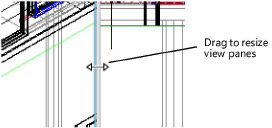
When multiple view panes are enabled, the pane layout can be altered by resizing, adding, and deleting view panes that are contained within the application window and by adding one or more floating view panes.
To resize view panes, hold the cursor over the pane splitter until the resize cursor appears, and then drag the cursor to the desired location. Both adjacent view panes resize.

|
Command |
Path |
|
Split Vertically/Horizontally |
● View > Multiple View Panes ● Context menu |
Split an existing view pane horizontally or vertically to create a second pane within the same space.
To split a view pane:
1. Click in the pane to be split, to make it the active pane.
2.Select the command, or right-click on the pane’s title flag and select the context menu command.
The pane is split into two equally sized panes with the same view; a panel splitter allows them to be resized as needed. The views and configurations can be changed independently.
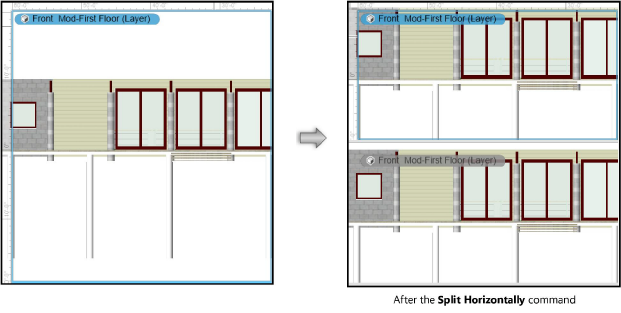
|
Command |
Path |
|
Close Active View Pane |
● View > Multiple View Panes ● Context menu |
To close a view pane within the application window:
1. Click in the pane to be closed, to make it the active pane.
2.Select the command, or right-click on the pane’s title flag and select the context menu command.
The active pane is closed and an adjacent pane is resized to fill the space. This action cannot be undone; to redisplay the view in the closed pane, a new pane must be added and the view set up as desired.
If multiple panes adjacent to the active pane are aligned evenly with the active pane, there is no way to control which adjacent pane will be resized to fit the space vacated by the closed pane. To ensure the desired pane layout, resize the active pane before closing it.
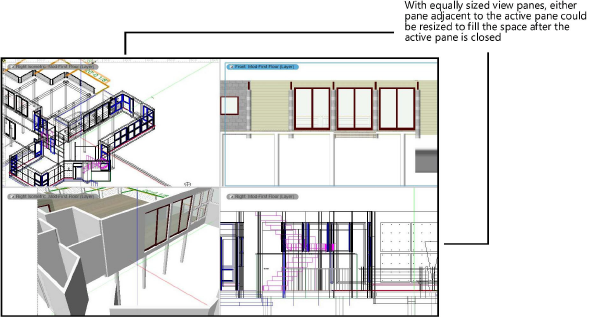
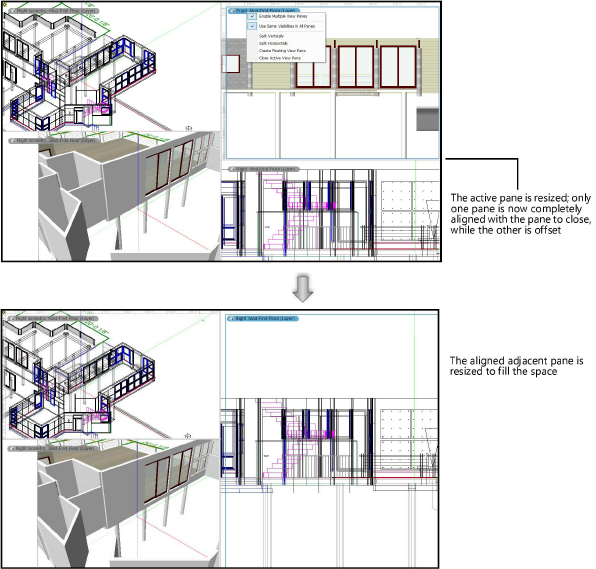
|
Command |
Path |
|
Create Floating View Pane |
● View > Multiple View Panes ● Context menu |
Create a floating view pane from any of the following:
● Single pane view (multiple view panes are disabled)
● Any view pane, when multiple view panes are enabled
● Another floating view pane
● An existing saved view (Vectorworks Design Series required)
The floating view pane can be configured and edited independently of other view panes. It can be resized, moved (including to another screen on a multiple-monitor setup), and closed like a palette. A floating pane remains visible, regardless of whether multiple view panes are enabled.
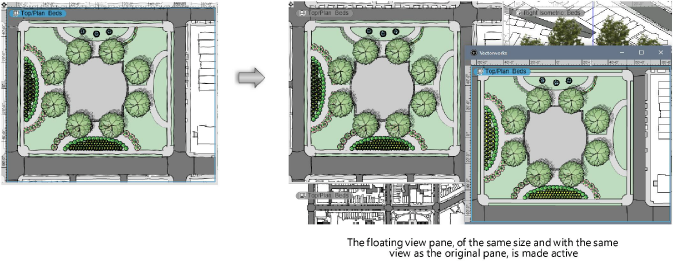
To add a floating view pane:
1. If multiple view panes are enabled, click in the pane to be duplicated as a floating pane, to make it the active pane.
2.Select the command, or right-click on the pane’s title flag and select the context menu command.
You can also create a floating view pane from a saved view in the Navigation palette (Design Series required). On the Saved Views tab, right-click the saved view name, and select Activate in new pane from the context menu.
~~~~~~~~~~~~~~~~~~~~~~~~~